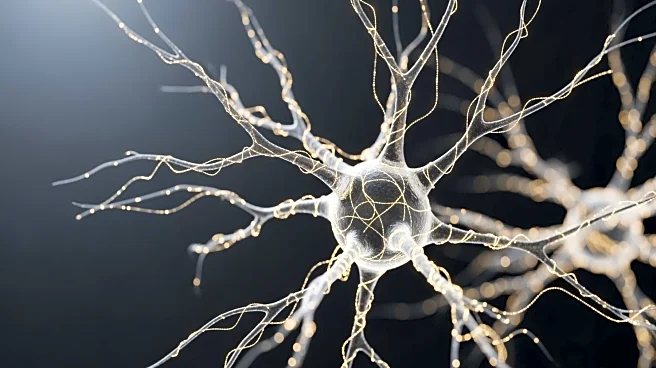Rapid Read • 8 min read
Nutritionists are addressing common misconceptions about carbohydrates and sugar, particularly in relation to menopausal health. Experts Pinchieh Chiang, D.O., Jessica Corwin, M.P.H., R.D.N., and Lauren Manaker, M.S., R.D.N., L.D., emphasize the importance of carbs in a balanced diet, especially during menopause when hormonal changes affect carbohydrate processing. They highlight that while some women may develop insulin resistance during menopause, carbs should not be entirely avoided. Instead, focus should be on complex, fiber-rich sources like vegetables, whole grains, legumes, and fruits, while reducing refined sugars. The experts clarify that sugar is a type of carbohydrate, and the sugar in fruit is processed differently than added sugars found in candy. They also discuss the role of artificial sweeteners and the importance of balanced meals for stable energy levels.
AD
Understanding the role of carbohydrates and sugar in menopausal health is crucial for women navigating hormonal changes. Misconceptions can lead to unnecessary dietary restrictions that may impact energy levels, mood, and overall health. By debunking myths, nutritionists aim to guide women towards healthier dietary choices that support metabolic health and energy stability. This information is significant for public health as it encourages informed dietary decisions, potentially reducing the risk of insulin resistance and promoting better management of menopausal symptoms. The emphasis on complex carbs and natural sugars supports a balanced diet that can aid in maintaining mental clarity, digestion, and mood during menopause.
Women experiencing menopause may consider consulting healthcare professionals to tailor their diets according to their individual needs. Nutritionists may continue to educate the public on the benefits of complex carbohydrates and the importance of balanced meals. As research evolves, further studies may provide deeper insights into the relationship between diet and menopausal health, potentially influencing dietary guidelines and public health recommendations.
The discussion around carbs and sugar during menopause highlights broader issues of dietary misinformation and the need for personalized nutrition advice. It underscores the importance of understanding the nutritional value of foods beyond their calorie content, considering factors like fiber and antioxidants. This approach may lead to a shift in how dietary health is perceived, encouraging a focus on quality rather than quantity.
AD
More Stories You Might Enjoy












